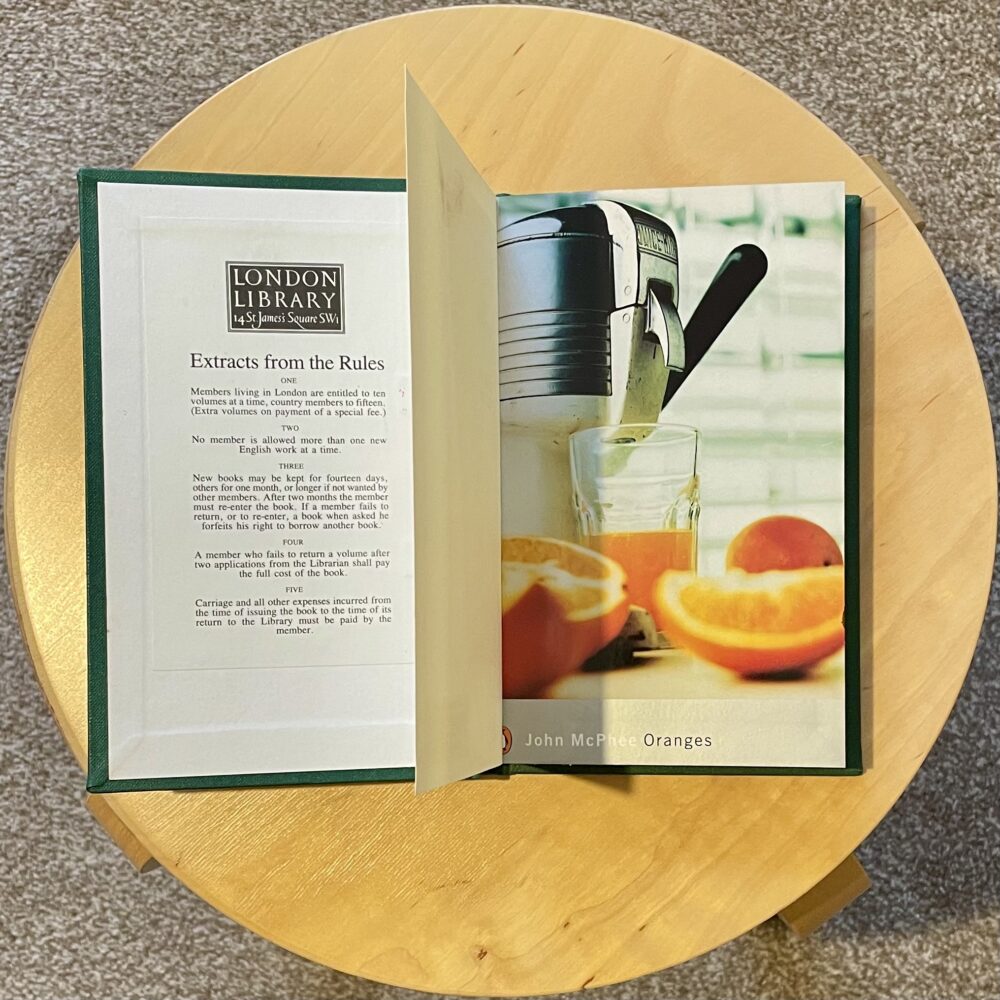‘Oranges’ by John McPhee

Published in 1967, McPhee’s book on oranges was recently recommended in The Economist as a particularly good bit of non-fiction writing. In its first form, it was a much shorter article in The New Yorker, but the author felt that he had too much fascinating material to keep to a single article, and so the book grew out of it.
Oranges is an esoteric and lightly humorous history of the relationship between humans and oranges. It focuses in particular on the development of orange juice made from pasteurised concentrate, which was a huge shift the industry was undergoing at the time the book was published.
I didn’t know how much I didn’t know about oranges before I read this book. They are berries. They are not ‘true from seed’, so if you plant the seeds from an orange, you might get a tree that bears lemons or limes or grapefruit or any other citrus: most Florida oranges are grown via grafts onto lemon trees. There’s a whole weird history about women and oranges, with a remarkably persistent belief that if a woman touched an orange tree, it would die.
This is a book that is strange and charming, clearly crafted with love by someone who just wanted to share information that he found fascinating. The enthusiasm shines through on every page. And, more than that, it’s easy to see how the modern work of non-fiction authors like Jon Ronson and Will Storr flows directly from the innovative style McPhee adopted in his early work.
If I could summarise in only one word, then I’d describe this book as ‘delightful’.
This post was filed under: What I've Been Reading, John McPhee, Jon Ronson, Will Storr.